Final Work-In-Progress Report + Various
Monday, August 22nd, 2016Work-In-Progress Report
I haven’t been posting much lately, have I? That’s because I’ve mostly been writing, with time off for workouts — but even the workouts stopped a few days ago as other chores intruded.
Anyway, as noted in the title, this is my last work-in-progress report for the new novel, because that novel is officially “done.”
Of course, in this business there are many phases of “done,” and there will certainly be more revisions to come, but it’s now with my agent, so that’s a draft!
John W. Campbell Memorial Award
The Hugo Awards, given out at Worldcon this past weekend, were casting shade, but the winner of the John W. Campbell Memorial Award was also announced during the convention — and no, it wasn’t me. The award went to Eleanor Lerman for her novel Radiomen. Congratulations to Eleanor! As it turns out, Going Dark was tied for second place alongside Adam Roberts’ The Thing Itself.
Recommended Audiobook
Malka Older’s Infomocracy is a near-future look at politics and the way a global system of “micro-democracies” might work — and of course how people, being people, will attempt to game the system. The story takes place during a world-wide election, held every ten years, in which “centinels” — geographic divisions of a hundred-thousand people — are each choosing new leadership, and there is a lot of competition among the various political groups to pick up these new centinels.
The world building behind Infomocracy is absolutely brilliant and at times some of the observations made in the story are quite funny — but be aware that there is a lot of detail as the characters discuss statistics, voting, and political platforms. Think of Infomocracy as a bureaucrat’s thriller. I won’t be at all surprised to see it on next year’s Campbell Memorial list.
The audio narration is by Christine Marshal and I thought it was very well done.








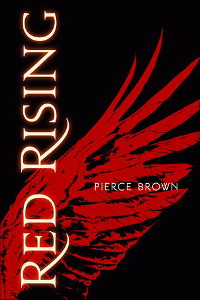 I don’t remember hearing much about Pierce Brown’s novel Red Rising within the SFF genre, but it’s been a hugely popular book, with 3,200 Amazon reviews averaging 4.5 stars. Even after I finally noticed it, I assumed it was a YA novel, and I’m not particularly interested in YA, so I didn’t pursue it. What finally persuaded me to take a serious look was an enthusiastic recommendation from
I don’t remember hearing much about Pierce Brown’s novel Red Rising within the SFF genre, but it’s been a hugely popular book, with 3,200 Amazon reviews averaging 4.5 stars. Even after I finally noticed it, I assumed it was a YA novel, and I’m not particularly interested in YA, so I didn’t pursue it. What finally persuaded me to take a serious look was an enthusiastic recommendation from 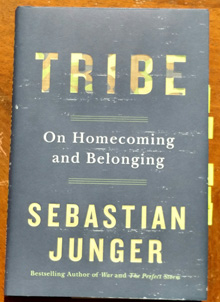 Evolutionary biologist Stephen J. Gould used Kipling’s term “just-so stories†to describe explanations of biological forms and functions that sounded good, but didn’t hold up to closer examination. This was on my mind as I finished Sebastian Junger’s latest book, Tribe.
Evolutionary biologist Stephen J. Gould used Kipling’s term “just-so stories†to describe explanations of biological forms and functions that sounded good, but didn’t hold up to closer examination. This was on my mind as I finished Sebastian Junger’s latest book, Tribe.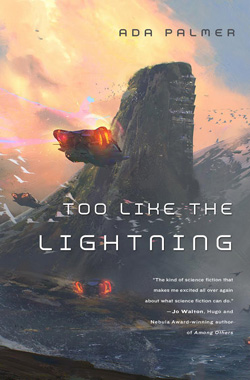
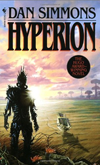 Hyperion and The Fall of Hyperion
Hyperion and The Fall of Hyperion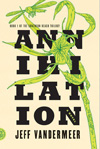 The Southern Reach Trilogy
The Southern Reach Trilogy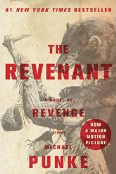 I just finished reading The Revenant, the 2002 novel by Michael Punke which inspired the 2015 movie of the same name. One reviewer described the novel as “plainspoken” and I found this to be true. The style of writing struck me as old fashioned, in that it felt like books written in the fifties and sixties that I’d read as a child. It reads more like a biography than a novel, and a few chapters in I paused to check that it actually was a novel. The narrative voice is omniscient, moving from the head of one character to another without hesitation or transition, and several times moving from one time and place to another without so much as a helpful blank line to cue the reader.
I just finished reading The Revenant, the 2002 novel by Michael Punke which inspired the 2015 movie of the same name. One reviewer described the novel as “plainspoken” and I found this to be true. The style of writing struck me as old fashioned, in that it felt like books written in the fifties and sixties that I’d read as a child. It reads more like a biography than a novel, and a few chapters in I paused to check that it actually was a novel. The narrative voice is omniscient, moving from the head of one character to another without hesitation or transition, and several times moving from one time and place to another without so much as a helpful blank line to cue the reader. 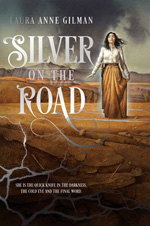 Silver on the Road by Laura Anne Gilman is the first example. This is a 2015 novel that has received rave reviews, but I hesitated to pick it up in large part because it was described as a “weird Western.” I’d never before heard of “weird Westerns,” but I think of weird fiction in general as the sort of horror that leaves me feeling like I need to clean my brain out; in other words, the sort of horror that I avoid. I’m happy to report Silver on the Road is nothing like that. This is a coming-of-age story of a young woman growing up in a fantastical version of the American West in which magic is commonplace. Early in the story, she makes a decision that will determine the path of her life to come — and that path is far more harrowing than anyone expects. The story does an excellent job of presenting both characters and landscape, and makes a compelling read. It’s the first of a series.
Silver on the Road by Laura Anne Gilman is the first example. This is a 2015 novel that has received rave reviews, but I hesitated to pick it up in large part because it was described as a “weird Western.” I’d never before heard of “weird Westerns,” but I think of weird fiction in general as the sort of horror that leaves me feeling like I need to clean my brain out; in other words, the sort of horror that I avoid. I’m happy to report Silver on the Road is nothing like that. This is a coming-of-age story of a young woman growing up in a fantastical version of the American West in which magic is commonplace. Early in the story, she makes a decision that will determine the path of her life to come — and that path is far more harrowing than anyone expects. The story does an excellent job of presenting both characters and landscape, and makes a compelling read. It’s the first of a series.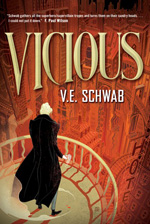 Honestly, I’ve begun to feel overwhelmed by the number of fantasy novels out there, and yet so many are so very, very good. I hate to admit it, but fantasy is the real backbone of the genre these days. VE Schwab’s Vicious is an example of why. This is a 2013 novel that, like Silver on the Road, garnered enthusiastic reviews, but as I recall, some of those reviews talked about “superheroes.” Like “weird fiction,” “superhero fiction” is a term that makes me take a step back and look for something else to read. But I was finally inspired to try Vicious and all those enthusiastic reviewers were right — it’s a very good book! That said, it’s not a book for everyone. It’s violent, and pushes the boundaries of antiheroes (hmm…not unlike my Puzzle Land books). It’s also very well written, with intriguing characters, excellent descriptions, good pacing, and a style of nonlinear story telling that I really liked.
Honestly, I’ve begun to feel overwhelmed by the number of fantasy novels out there, and yet so many are so very, very good. I hate to admit it, but fantasy is the real backbone of the genre these days. VE Schwab’s Vicious is an example of why. This is a 2013 novel that, like Silver on the Road, garnered enthusiastic reviews, but as I recall, some of those reviews talked about “superheroes.” Like “weird fiction,” “superhero fiction” is a term that makes me take a step back and look for something else to read. But I was finally inspired to try Vicious and all those enthusiastic reviewers were right — it’s a very good book! That said, it’s not a book for everyone. It’s violent, and pushes the boundaries of antiheroes (hmm…not unlike my Puzzle Land books). It’s also very well written, with intriguing characters, excellent descriptions, good pacing, and a style of nonlinear story telling that I really liked.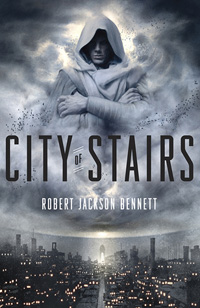 Best-of-the-year lists and award-nomination lists are fun to talk about and it’s awfully nice to have your work appear on them. But these lists are also valuable reminders that we have diverse tastes and that our reasons for reading — and for choosing what we read — are all very different. And I think it can be interesting to take note of what’s not on these lists.
Best-of-the-year lists and award-nomination lists are fun to talk about and it’s awfully nice to have your work appear on them. But these lists are also valuable reminders that we have diverse tastes and that our reasons for reading — and for choosing what we read — are all very different. And I think it can be interesting to take note of what’s not on these lists.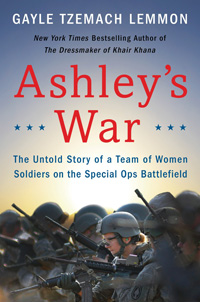 Ashley’s War, by Gayle Tzemach Lemmon, is a nonfiction account of the first wave of women in the US Army who volunteered to be part of the “cultural support teams†that accompanied Army Rangers and Green Berets on missions in Afghanistan.
Ashley’s War, by Gayle Tzemach Lemmon, is a nonfiction account of the first wave of women in the US Army who volunteered to be part of the “cultural support teams†that accompanied Army Rangers and Green Berets on missions in Afghanistan.